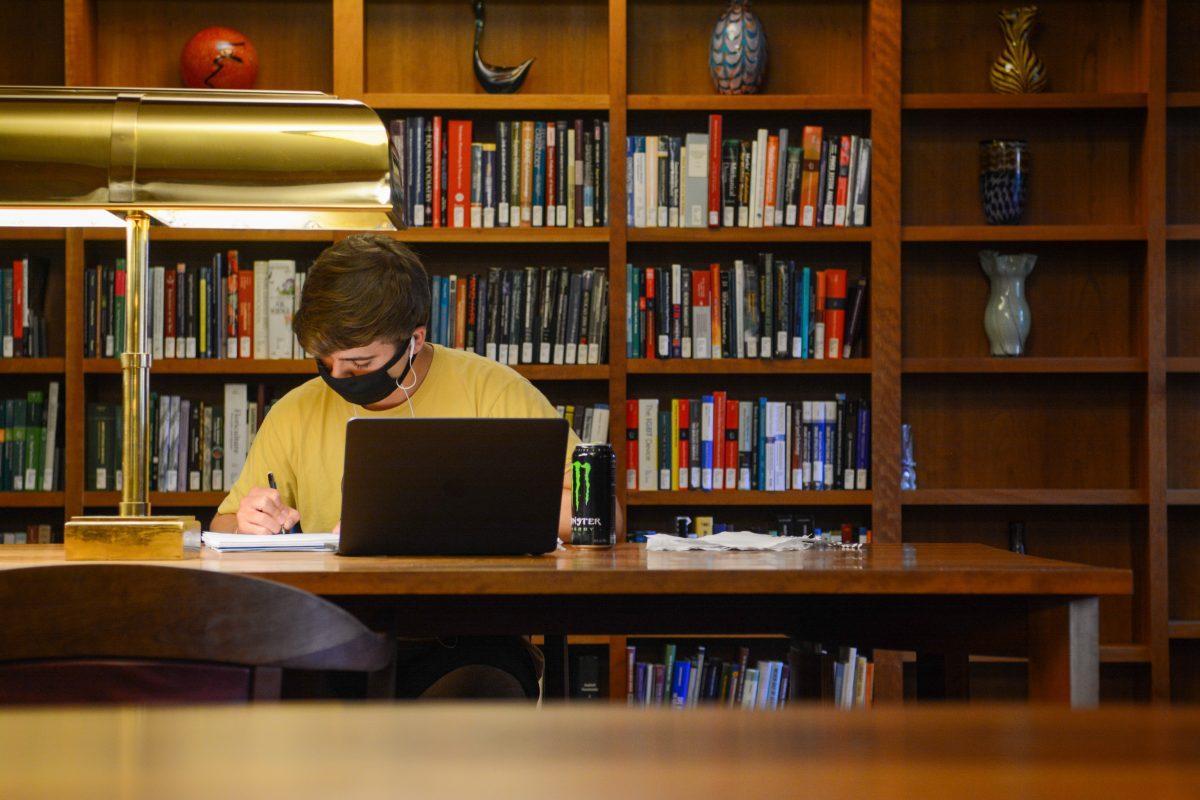Climate change poses an increasingly urgent threat to our future, but it can be a difficult issue to talk about. University Libraries is seeking to make these vital climate conversations easier through its new series, Gaming for Global Change, in which library staff members take to Twitch once a month to livestream a different climate change-centered game.
The series is an expansion of Wicked Problems, Wolfpack Solutions, an online course for incoming first-year and transfer students which encourages multidisciplinary exploration and offers connection with the NC State community. Karen Ciccone, head of the data and visualization department with University Libraries, explained that Gaming for Global Change was born out of a desire to further engage students with this year’s course topic of global change.
“We were looking for ways to engage students with global change which can be a somewhat difficult topic to talk about,” Ciccone said. “We think that games, through fictional scenarios, provide great ways to think about difficult issues. They are a great way to see the world from other perspectives, even other species’, and try to understand how they’re experiencing the effects of climate change.”
Each game will focus on a different facet of climate change’s unique challenges. To help navigate these topics, University Libraries plan to include special guests to help answer questions and guide conversations on the topics of the games.
In its first iteration, University Libraries teamed up with the North Carolina Museum of Natural Sciences to try “Bee Simulator,” a game played from a honeybee’s perspective as it collects pollen and protects its hive in an urban park setting.
Colin Brammer, a biologist for the museum, joined library staff to talk about all things bees as they played. Throughout the stream, viewers were able to comment and ask questions. A recording of the stream is posted on the University Libraries YouTube channel.
Claire Cahoon, an NC State Libraries Fellow, and Experiential Learning Services librarian Colin Nickels work together as primary project managers of the Twitch channel. They both found the first stream to be a success.
“It was a lot of fun to have that kind of conversation with a bee expert while playing a game that’s meant to represent the perspective of a bee,” Nickels said. “I think it allowed people to get out of their own headspace when talking about ecology in a way that they can’t otherwise.”
A key component of these streams, according to Cahoon, is viewer interaction.
“We were really excited to see a bunch of people in the chat having conversations and asking questions,” Cahoon said. “I think one of the real benefits of doing this live on Twitch is that you could stop by and ask the question of someone who’s experiencing the game but also somebody who’s an expert.”
The series will have three more streams throughout the fall semester, starting on Oct. 8 with the game “Never Alone: Foxtales,” which was developed in collaboration with the Inupiat Alaskan Native Community and follows a young girl named Luna and her fox as they explore the Arctic on a journey to save a friend.
“Climate changes are affecting the people and wildlife of the Arctic in dramatic ways,” Ciccone said. “So that comes in as an underlying force in the game.”
On Nov. 12, Vicky Thayer, a faculty member at the Center for Marine Sciences and Technology, will join library staff to play “Beyond Blue”. In this game, players pilot a deep-sea explorer to learn about ocean conservation and marine life.
As part of University Libraries’s destress stream series during exam week, staff will play “Civilization VI: The Gathering Storm” on Dec. 3. Players will explore how climate change due to energy resource use has direct effects on civilization.
The series is set to continue through the spring semester. In January, staff members will stream a role-playing game about extreme heat in North Carolina from the Museum of Life and Science in Durham.
The series demonstrates the possibility of accessible and even fun education on serious and pressing topics. Library staff hopes it will be an avenue to continue conversations about climate change.
“What is most exciting is having this chance to get people together to have conversations they wouldn’t otherwise be having,” Nickels said.














